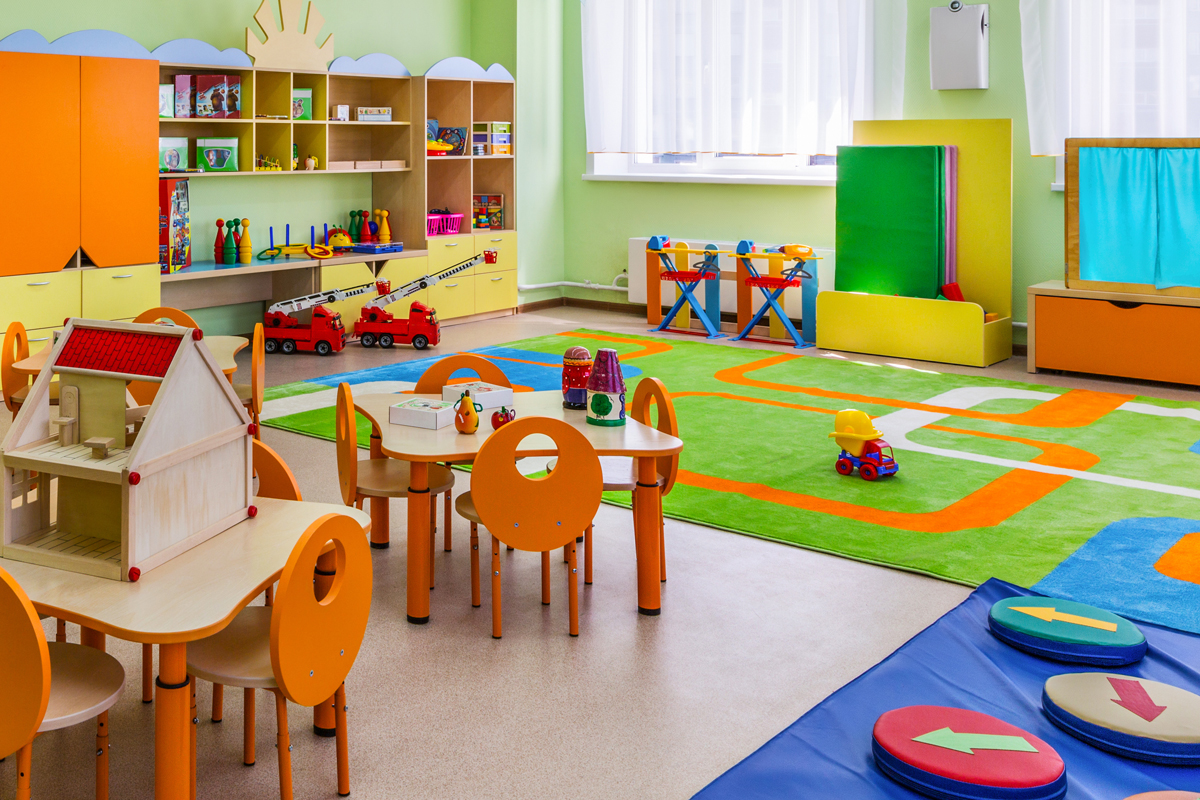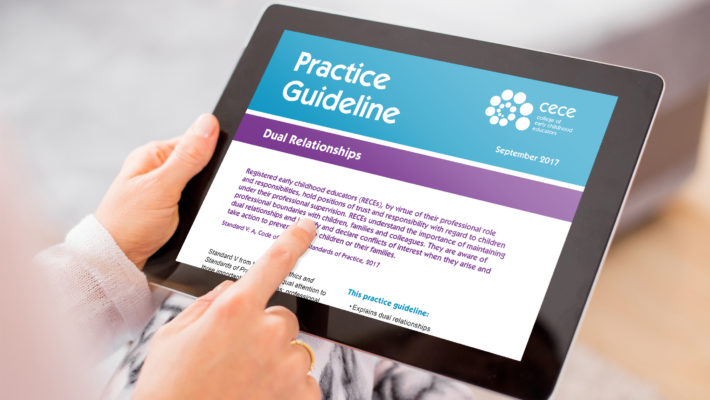The early learning and child care sector is always evolving, even when it comes to the legislation, regulations and policies that govern your profession. As a Registered Early Childhood Educator (RECE), it is important to know about these changes so you can reflect on them in relation to the College’s Code of Ethics and Standards of Practice (Code and Standards). When reflecting on changes, it’s also helpful to consider how they may impact your own practice.
An example of a change in policy is the recent update to The Kindergarten Program, 2016. The Ministry of Education has produced a revised expectations chart to assist in the understanding of these two changes and how they can be integrated into early learning. For RECEs, this presents an opportunity to review the Practice Note on Play-Based Learning to integrate these changes to kindergarten programming into your own pedagogy.
As an RECE, you’re knowledgeable about current legislation, policies and procedures related to your professional practice as well as to the care and education of children. In light of the recent changes to The Kindergarten Program, 2016, the College has provided the following questions for your reflection:
Q1: Standard II of the Code and Standards says that RECEs use technology and assistive technological tools as appropriate to support children’s learning and development (C.5).
- Do I believe that children are capable of discussing what action to take when they feel unsafe or uncomfortable, in person or online, and when and how to seek assistance?
- What additional resources do I need to effectively engage in conversations about technology and the ways children are vulnerable without evoking fear?
- How might I involve families and colleagues in this conversation?
Q2: Standard III says that RECEs must take appropriate steps to ensure that the environment complies with safety, health and accessibility legislation. They observe and monitor the learning environment and take responsibility to avoid exposing children to harmful or unsafe situations. This standard also outlines an RECE’s responsibility to design or modify indoor and outdoor learning environments to support children’s self-regulation, independence, reasonable risk-taking, meaningful exploration and positive interactions.
- How do I collaborate with my teaching partner to ensure children are physically safe while still finding ways to encourage exploration, engagement, healthy risk-taking and independence?
- What additional resources do I need to support my practice?
- How can I support children to care for themselves and watch out for the well-being of their peers without placing too many restrictions on their creativity and opportunities for engagement?
Q3: What do I know about concussions and the steps to take when I suspect a head injury? What workplace policies and procedures do I need to review?
The above reflection questions are meant to provide you with meaning and context to the Code and Standards as you think about the legislative changes and your pedagogy. It may also be helpful to discuss these questions and the changes with your colleagues. By talking about scenarios, either potential or real, it can help you to construct a new understanding and develop additional strategies that help you enhance your own practice.




